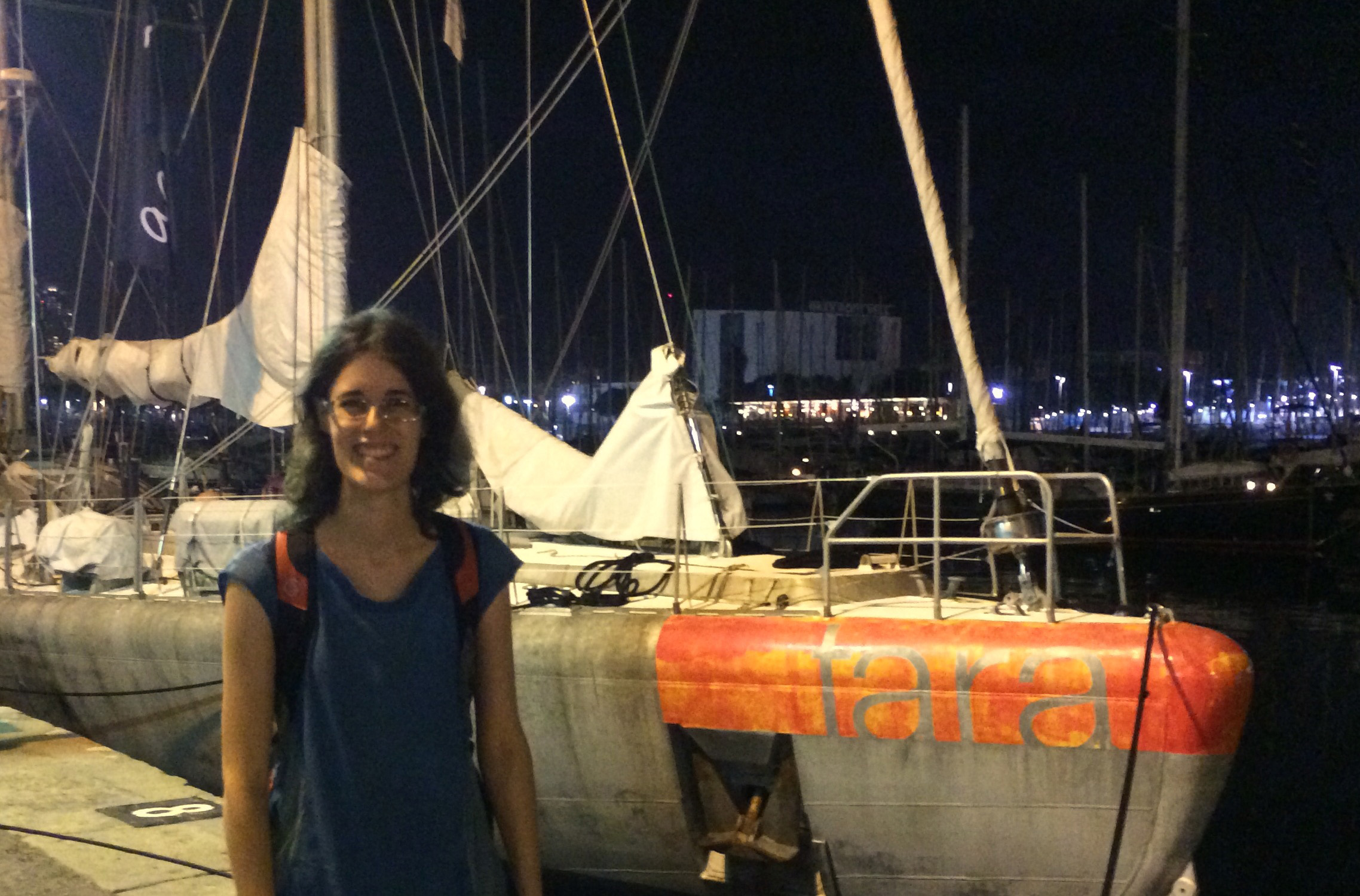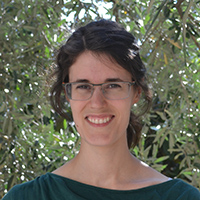SINGEK BLOG: A floating lab to understand our planet

Someone took a photo of me standing in front of the Tara that night.
I remember spending a long afternoon at the faculty working with some colleagues. It was a day in October and the streets of Barcelona were quiet empty, probably it was getting late. As I left the university library, I said goodnight to everyone and made my way straight towards the Moll de la Fusta quay. Finally.
When I arrived at the harbour, I immediately spotted her. I could hardly take my eyes off her. That metallic hull. The wrapped up main sail and jib. The electric orange of her name on the bow. Tara. I’m not sure if there were other people around me or anything else going on, but I do remember feeling the magic in the atmosphere that night.
I got closer to the edge of the quay and I put my hand on top of her silvery skin: a skin that had swam the seven seas, had resisted the arctic cold and had carried a floating laboratory all around the planet to study marine ecosystems. Tara is a beautiful schooner of 400 square metres that feeds scientists with unprecedented data.
The most remarkable feature of our planet is that 70% of its surface is covered by water. Oceans, these vast extensions of water masses, move incessantly transporting nutrients and heat. They regulate climate and synchronise energy fluxes in perfect harmony. They make this pale blue dot a safe and habitable home for us. However, our understanding of the complex regulatory cycles of the oceans as well as of the life inhabiting them is still very limited. This is where Tara comes into play.
For more than 12 years, the foundation Tara Expeditions has been organising ocean sampling campaigns to push forward the limits of our knowledge on marine systems and climate change. Tara expeditions work more or less like this: a team of adventurous scientists sails towards places where they can extract water samples of biological interest, and they send the material they collect to the labs as quickly as they can. In these labs are scientists who will take care of storing samples in freezers and who will use them for any sort of analyses – like microscopic imaging or DNA extraction. And finally, at the end of the chain, there are dozens of research groups that will analyse the data obtained to try to answer biological questions.
In my case, I’m part of the ones who open the computer every morning and spend hours looking at this data to explore the ecological patterns of microbes. While I do that, sometimes my mind wanders back to that night at the quay. Back then, the Tara crew only spent a few nights in Barcelona after a long trip in the Mediterranean. Right now, the boat is embarked on a new adventure in the Pacific. There are no limits for this floating lab of 36 meters length. Equally, there is hardly a limit for our passion to make sense of the data coming out of those expeditions.
You can follow the Tara pacific mission here: http://oceans.taraexpeditions.org/en/parcours-tara/
Video to be embedded: https://www.youtube.com/watch?v=xJkUmn8MgM4
About the author

Laura Rubinat – ESR 8
In 2009, I started a BSc in Biology at the University of Girona. During my bachelor, I completed an internship at the European Molecular Biology Laboratory (EMBL Heidelberg, Germany), where I studied the evolution of microbial cooperation interactions. Thereafter, I joined the Molecular Microbial Ecology group at the University of Girona to carry out my bachelor’s final project, which consisted on establishing synthetic biofilms to investigate the effects of spatial organization on bacteria denitrification capacity. I soon became interested in the infinite possibilities that bioinformatic tools offer us to answer biological questions, and after graduating I enrolled in the Master’s programme in Bioinformatics for Health Sciences, jointly organized by the Pompeu Fabra University and the University of Barcelona. I completed my master’s thesis at the Institute of Marine Sciences (ICM-CSIC, Barcelona), focusing on a comparative study of picoeukaryotic and prokaryotic phytoplankton diversity in the global ocean.


Leave a Reply
Want to join the discussion?Feel free to contribute!